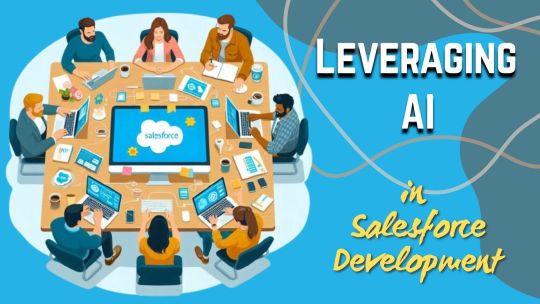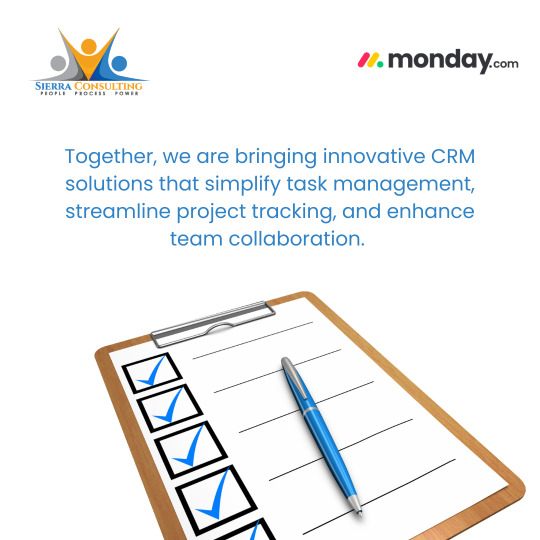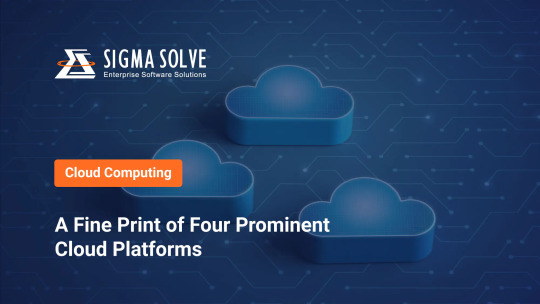#salesforce automation services
Explore tagged Tumblr posts
Text
youtube
#salesforce#salesforce development services#salesforce development company#salesforce certified consultants#salesforce automation company#salesforce development agency#salesforcecodex#development#salesforce automation services#salesforce partner company#Youtube
1 note
·
View note
Text
Cymetrix | Salesforce Financial Cloud Implementation Partners

Cymetrix offers expert Salesforce Financial Services Cloud solutions tailored for financial institutions. Enhance customer engagement, streamline operations, and drive growth with customized Fintech CRM, data integration, and advanced analytics. Partner with Cymetrix for scalable, secure, and innovative Salesforce solutions.
#cymetrix software#cymetrix salesforce#financial industry#financial services#salesforce finance cloud#fintech#salesforce#salesforce financial cloud services#marketing automation agency
2 notes
·
View notes
Text

Workflow Automation Trends 2025: Are You Ready for the Next Leap?
Blog Description: The Future is Automated: Top Workflow Automation Trends to Watch in 2025
Are You Keeping Pace with the Workflow Automation Revolution?
In 2025, workflow automation is no longer a luxury—it's a necessity. The rapid evolution of digital transformation, AI-driven automation, and intelligent workflows reshapes how businesses operate. Companies that fail to adapt risk falling behind in an increasingly competitive landscape.
Modern workflow automation transcends mere task automation; it's about integrating intelligent systems that can learn, adapt, and make decisions in real-time. These systems enhance efficiency, reduce errors, and free up human resources for more strategic initiatives. As noted by Applied Innovation, "Automated workflows bring order to the chaos and allow your team to focus on what matters most: growing your business".
Key trends such as hyperautomation, low-code/no-code platforms, and AI-powered decision-making are at the forefront of this transformation. Embracing these trends is crucial for businesses aiming to enhance productivity, ensure compliance, and deliver superior customer experiences. So, is your organization ready to harness the power of workflow automation and stay ahead in 2025? Let's explore the transformative trends that are setting new standards in business operations.
The top trending automation tools are as follows:
1. AI-Driven Decision Making Takes the Lead
In 2025, automation isn’t just executing tasks—it’s making decisions. With advancements in AI and machine learning, workflow automation tools now analyze patterns, predict outcomes, and even choose the best course of action. Whether it’s approving invoices or routing customer queries, systems are becoming self-learning entities.
2. Hyperautomation Becomes Standard
Hyperautomation goes beyond individual task automation—it's about automating everything that can be automated. In 2025, businesses are blending robotic process automation (RPA), AI, and low-code/no-code tools into one massive automation engine.
Why it matters: It allows seamless end-to-end automation across departments like HR, finance, and operations.
3. Human-in-the-loop (HITL) Automation Balances Control and Efficiency
Businesses are realizing the value of blending automation with human oversight. HITL workflows enable bots to escalate uncertain decisions to humans, maintaining accuracy and accountability—especially in sensitive processes like compliance or customer queries
4. Voice-Activated Workflow Automation
Move over typing—2025 welcomes voice-activated automation. With smart assistants like Alexa for Business and voice-integrated SaaS platforms, tasks can be triggered via voice commands. Think about scheduling meetings, sending reports.
5. Autonomous Workflows Powered by IoT
IoT-connected devices are now automating physical workflows in real time. Smart sensors, wearables, and edge devices are triggering automated processes based on environmental or usage data.
FAQs About Workflow Automation in 2025
Q1. What industries benefit most from workflow automation in 2025?
Virtually all industries can benefit, but top adopters include retail, healthcare, e-commerce, logistics, fintech, and IT services.
Q2. Are low-code/no-code platforms still relevant?
Absolutely. They’re more powerful now, enabling non-tech teams to build complex automation quickly with AI-assisted recommendations.
Q3. Can automation replace all human jobs?
Not quite. Automation handles repetitive tasks, but creativity, empathy, and strategic thinking remain human strengths. The future is about collaboration, not replacement.
Q4. How secure are these automation tools?
Leading platforms now prioritize security and compliance, offering features like end-to-end encryption, multi-factor authentication, and secure data flows.
Q5. What’s the best way to start automation in a small business?
Start simple: Automate daily repetitive tasks like email responses, appointment scheduling, and invoice generation. Use tools like Zapier, Make, or Microsoft Power Automate to scale gradually.
Conclusion:
2025 is all about smart, scalable, and secure automation. Whether you're a startup or a global enterprise, the key is to stay agile, experiment often, and keep the human touch where it matters most.
So get ready to automate your way into the future...
#marketing technology#business growth#automation workflow#automation trends#project management#business strategies#artificial intelligence#marketing services#adobe workfront#salesforce#Aprimo services
1 note
·
View note
Text

Boost your CRM performance with TechMatrix's expert-managed Salesforce services. Discover how their Salesforce platform management, 24/7 support, and implementation expertise drive business efficiency and scalability.
Read more: https://tech6922.wordpress.com/2025/04/11/maximize-efficiency-with-techmatrixs-managed-services-for-salesforce-platforms/
#Salesforce Implementation Partner#managed Salesforce services#Salesforce support#TechMatrix managed services#Salesforce platform management#CRM efficiency#Salesforce consulting#Salesforce managed solutions#Salesforce automation#Salesforce optimization
0 notes
Text

Explore how Salesforce Agentforce is revolutionizing enterprise automation with AI-driven workflows and seamless integrations. In this blog, Ravi Jain, Chief Delivery Officer, Salesforce & Analytics shares insights on:
��� Atlas Reasoning Engine – AI agents execute complex workflows autonomously 🔹 Seamless Integrations – Works with Salesforce Data Cloud & MuleSoft for real-time processing 🔹 Enhanced Customer Service – AI-powered responses for faster resolution
1 note
·
View note
Text
FEXLE is Now Agentforce Partner Network Member

FEXLE is excited to announce its partnership with Agentforce! This collaboration will empower businesses to leverage AI and automation to transform customer experiences.
Learn more here!
#salesforce Agentforce Network#Agentfore Partner#Fexle Services#crm consulting#Salesforce platinum partner#AI nd Automation#Fexle Partners with Agentforce
0 notes
Text

Leveraging AI in Salesforce Development
Artificial Intelligence (AI) is revolutionizing Salesforce development by infusing intelligence into traditional CRM processes. AI allows Salesforce to evolve from a static data management platform into a dynamic, insight-driven system that can predict, recommend, and automate key functions. With AI, Salesforce development is now more about building solutions that are not just reactive but proactive.
Know more at: https://www.cyberswift.com/blog/leveraging-ai-in-salesforce-development/
#generative ai in salesforce#salesforce ai cloud#salesforce einstein gpt#ai-powered crm solutions#bill cipher#salesforce automation with ai#predictive analytics in salesforce#ai-driven customer insights#ai-enhanced salesforce workflows#salesforce lightning and ai integration#chatbots and salesforce crm#salesforce consulting services#salesforce crm solutions#custom salesforce development#salesforce lightning development#salesforce app development#salesforce api integration#salesforce cloud services#salesforce automation solutions#salesforce migration services#salesforce support and maintenance#low-code salesforce development#ai-powered salesforce solutions#iot integration with salesforce#salesforce blockchain integration
1 note
·
View note
Text
🔗 Seamlessly Connect Your Systems with Salesforce Integration Services! 🌐
Struggling to sync your Salesforce CRM with other tools and platforms? Salesforce Integration Services ensure that all your business systems—from ERP to marketing automation—work together seamlessly! Streamline your operations, boost data accuracy, and unlock new efficiencies. Dextara Datamatics
✅ Effortless Data Sync ✅ Enhanced Workflow Automation ✅ Custom API Integrations ✅ Real-Time Insights Across Platforms
Integrate smarter and accelerate your business success! 🚀💼
#salesforce consultant#salesforce consulting services#boost data accuracy#and unlock new efficiencies.#✅ Effortless Data Sync#✅ Enhanced Workflow Automation#✅ Custom API Integrations#✅ Real-Time Insights Across Platforms#Integrate smarter and accelerate your business success! 🚀💼#Salesforce#DigitalTransformation#BusinessEfficiency#CRM#DataSync
0 notes
Text

Sierra Consulting Inc has teamed up with Monday.com to provide bespoke CRM services that strengthen customer relationship management. Their partnership employs Monday's extensive CRM platform to create solutions that enhance efficiency and collaboration in sales and customer management.
#it#it jobs#tech#technology#technews#current events#sierra consulting#crm benefits#crm services#crm#crm software#crm platform#crm development#crm strategy#crm solution#crm integration#best crm for small business#salesforce#automation
0 notes
Text
Use CRM for Sales Automation
Introduction
Sales automation can revolutionise your sales strategy. By leveraging CRM software, you can streamline your selling process, manage follow-ups, and handle lead management more efficiently.
This step-by-step guide will walk you through how to set up and utilise CRM for sales automation, ultimately driving growth and efficiency.
Understanding CRM and Sales Automation
Customer Relationship Management (CRM) is a technology-driven strategy for managing a company's interactions with current and potential customers. It uses data analysis to improve business relationships, focusing on customer retention and sales growth. CRM systems gather data from various channels like websites, phones, emails, live chats, and social media.
Sales automation involves automating manual, time-consuming sales tasks using software, AI, and other digital tools. This allows salespeople to focus on tasks that require human intelligence and personal touch. Integrating CRM with sales automation enhances efficiency by automating repetitive tasks, improving the selling process, and providing insights into customer preferences and activities.
Benefits of CRM and Sales Automation Integration
Time-Saving: Automates routine tasks like data entry, follow-up emails, and meeting schedules.
Accuracy: Reduces human errors in data entry and maintenance.
Enhanced Customer Experience: Provides timely responses with the appropriate level of formality.
360-degree Customer View: Allows personalised approaches and informed decision-making.
Improved Team Collaboration: Centralises all customer data and activities.
Accurate Sales Forecasting: Facilitates data-driven decision-making and planning.
Setting Up Your CRM for Sales Automation
Choose the Right CRM Software
Import and Structure Customer Data
Configure Workflows and Automation Rules
Set Up Custom Fields and User Roles
Lead Management and Scoring
Automate Lead Capture and Distribution
Establish a Lead Scoring System
Continuous Review and Update
Lead Nurturing
Automated Sales Pipeline Management
Define Sales Process Steps
Automate Task Creation and Follow-Up
Track Deals in Real-Time
Sales Forecasting
Continuous Improvement
Communication and Follow-Up Automation
Email Templates and Sequences
Automated Reminders and Notifications
Multi-Channel Communication
Personalisation
Engagement Scoring
Post-Transaction Communication
Analytics and Reporting for Continuous Improvement
Track Key Performance Indicators (KPIs)
Create Dashboards and Reports
Data-Driven Adjustments
A/B Testing
Trend Analysis
Predictive Analytics
Conclusion
CRM software for sales automation can significantly boost revenue, improve customer relationships, and streamline sales processes. By setting up and utilising CRM effectively, businesses can gain valuable insights and enhance operational efficiency. Remember, CRM is an ongoing process that requires periodic adjustments as your company grows.
IT Solutions Solved specialises in enhancing, consulting, and implementing CRM capabilities to help businesses achieve operational efficiency and customer satisfaction. Our experts can guide you through CRM deployment, customise systems to meet your goals and maximise the impact on your sales operations.
Click here to read our full post...
#best crm for small business#crm for sales automation#zoho crm#salesforce#pipedrive crm#hubspot#crm consultancy#crm consulting services#expert crm consulting services#it solutions solved#zoho#crm#crm consulting#crm consultant in melbourne
0 notes
Text
📢 Master Salesforce Data Modeling – First Step for Data Architect Certification! 🚀
Are you preparing for the Salesforce Data Architect Certification? Understanding Data Modeling is crucial for designing scalable and efficient Salesforce solutions.
In this video, we cover: ✅ Objects, Fields, and Relationships ✅ Standard vs. Custom Objects ✅ Lookup vs. Master-Detail Relationships ✅ Schema Builder & Best Practices
🎥 Watch Now: https://youtu.be/Lq6SAD8dIS0
📌 If you're a Salesforce Admin, Developer, or Architect, this video is for you! Let’s discuss – what are your biggest challenges with Data Modeling? Drop your thoughts in the comments! 👇
🔔 Don’t forget to Like, Share & Subscribe to SalesforceCodex for more expert Salesforce content! 🚀
#Salesforce #SalesforceDataArchitect #SalesforceCertification #DataModeling #SalesforceAdmin #SalesforceDeveloper #CRM #SalesforceBestPractices
#salesforce#salesforce development services#salesforce development company#salesforce certified consultants#salesforce automation company#salesforce partner company#salesforce automation services#salesforce development agency#salesforcecodex#development
0 notes
Text

Techify Solutions offers customized CRM services designed to enhance business efficiency and drive growth. Our expert CRM development and seamless integration with platforms like Salesforce and HubSpot optimize your operations and streamline processes. Contact Now: https://techifysolutions.com/services/crm-solutions-and-services/?utm_source=seo&utm_medium=socialbookmarking
#CRM Solutions#Custom CRM Development#CRM Integration#Salesforce Integration#HubSpot CRM#Business Efficiency#CRM Platform Migration#Sales Automation#Marketing Automation#Business Process Automation#CRM Services#Data Management#CRM Consulting#CRM Optimization#Techify Solutions
0 notes
Text
Cymetrix | Marketing Automation Services for Ecommerce

Struggling to keep your eCommerce customers engaged? Many businesses face the challenge of turning browsers into buyers and retaining them for repeat sales. Cymetrix’s Marketing Automation Services for Ecommerce provide the perfect solution. We help you craft personalized customer journeys that resonate, automate critical processes like abandoned cart recovery, and leverage AI-driven insights to boost conversions.
From targeted email campaigns to predictive analytics for smarter marketing decisions, our services are tailored to maximize your sales while minimizing manual effort. Picture creating impactful, data-driven campaigns that deliver the right message at the right time, driving engagement and loyalty.
Whether you’re looking to streamline your marketing or improve your ROI, Cymetrix empowers your eCommerce business with scalable solutions that deliver results. Let us help you simplify your marketing efforts and turn challenges into growth opportunities.
#cymetrix software#cymetrix salesforce#marketing automation india#marketing automation services#marketing automation company#marketing automation for ecommerce#marketing automation#marketing automation agency#cymetrix marketing automation services
0 notes
Text
Transform Your Business with Top-notch Salesforce Automation Services in Kolkata
Looking to streamline your business processes? Our Salesforce automation services in Kolkata offer tailor-made solutions to boost efficiency and productivity. With our expert team, we'll help you harness the power of Salesforce to automate repetitive tasks, streamline workflows, and drive growth. Whether you're a small startup or a large enterprise, our services are designed to meet your specific needs and goals. Experience seamless integration and optimized performance with our Salesforce automation services in Kolkata. Unlock your business's full potential today! To know more information please feel free to contact us today at +91 9147 180261 or visit again here - https://cliky.com/sales-force-automation-software/
#Salesforce integration solutions#CRM automation services#Kolkata Salesforce consultants#Cloud-based automation tools#Digital transformation services#Salesforce Automation Services in Kolkata
0 notes
Text

Discover how Salesforce helps professional services enhance client engagement, automate workflows, and boost ROI in 2025 with AI-powered CRM solutions.
Read more: https://salesforcetechmatrix.blogspot.com/2025/03/maximizing-client-engagement-with.html
#Salesforce for professional services#client engagement strategies#Salesforce CRM 2025#Salesforce implementation partner#AI-driven CRM tools#client retention Salesforce#automate workflows#Salesforce benefits for consulting firms#professional services CRM#Salesforce Marketing Cloud
0 notes
Text
A Fine Print Of Four Prominent Cloud Platforms

Synopsis:
Not only cost-cutting, but cloud computing services have become an essential business element to survive changing market dynamics, improve product or service delivery, and grow beyond convention success. In this blog, we emphasize selecting the right cloud platform instead of investing massively in building IT infrastructure, data warehouses, and security apparatus. Nonetheless, we will study each cloud solution provider with a comparative analysis.
What is a cloud platform?
A cloud platform can be referred to in a number of ways. Still, usually, a data center that houses IT infrastructure consisting of operating systems, software applications, and hardware products on a server is known as a cloud platform. Cloud companies such as Microsoft, Amazon, Google, Snowflake, Salesforce, and others have built cloud services for various business processes.
Going further in this blog, we will evaluate the four prominent cloud platform providers here, namely Salesforce, Azure from Microsoft, AWS from Amazon, and Snowflake. We will also evaluate them collectively through a comparative study.
Azure by Microsoft:
Azure is one of the most definitive cloud platforms developed by Microsoft. The cloud services offered by Azura are far-ranging for businesses of all types. Azure brings an exhaustive list of cloud services for businesses such as MaaS, IaaS, PaaS, and SaaS to perform almost all tasks on the cloud without the need for in-house infrastructure. Azure has a fanbase and a loyal customer base. From MSMEs to global enterprises, all types of businesses prefer Azure Cloud services, given its all-inclusive cloud services, encompassing data storage, data processing, cloud computing, data analytics, and networking, among many other services.
Prominent Features:
AI and ML: Azure comes with empowering AI and ML tools to help businesses develop AI-based applications, perform AI-based automation, and craft accurate data analytics.
Scalability: Businesses are able to increase or decrease the utilization of resources per their needs to ensure that they don’t overshoot the cost and maximize resource utilization.
Security: Microsoft is known to provide a secure IT environment, and Azure is no different. From encryption to compliance and from identity to data access, Azure offers robust security.
Hybrid Capability: Azura makes it possible for businesses to collaborate between cloud infrastructure and in-house IT infrastructure effortlessly and seamlessly.
Global Reach: Azure possesses a wide network of data centers across the globe, enabling businesses to access data, applications, and hardware with low latency from anywhere.
Why Azure?
Flexible: Azure is a highly flexible cloud service platform. Businesses can scale up and scale down the number of services as per their needs to calibrate their cost-benefit ratio.
Versatile: There isn’t anything that Azure can’t offer. Its versatility empowers all kinds of businesses with almost all types of cloud computing services and AI integration.
Integration: Azure supports many open-source technologies to help businesses seamlessly integrate their existing products and features, such as Windows and SQL servers, with Azure.
Cost-effective: Azure doesn’t make big holes in pockets due to scalability and flexibility and helps businesses optimize resources and control costs.
Monitoring: Azure’s single-pane operations capability flawlessly monitors and manages the IT environment against cyber threats for hybrid infrastructure.
AWS by Amazon:
When we talk about cloud computing, we must mention AWS by Amazon. Since 2006, AWS has been a top-notch on-demand cloud services provider. AWS cloud services include data analytics, machine learning, database management, computing capabilities, and data storage and processing. Migrating to the AWS cloud platform has helped many businesses grow their businesses exponentially without making much capital investment in building IT infrastructure. In fact, businesses have successfully expanded their businesses in one or two countries globally. AWS is known for its security measures that protect applications, data, and hardware — all together with its robust anti-hacking cybersecurity apparatus.
Prominent Features:
Ecosystem: AWS consistently updates its cloud technology with new services and launches new ones regularly. It has created an ecosystem that enables businesses to innovate and improve constantly.
Performance: AWS ensures redundancy for businesses to avail services on-demand. Moreover, with service level agreements with third parties, AWS ensures the availability of services for peak performance.
Global Scope: AWS has its data centers spread across the globe. Businesses can avail of cloud services, including compliance certificates and data storage, anywhere in the world to expand their businesses.
Security: Compliance certificates, data encryption, identity and data access management, and user management are some of the key security features that make AWS a secure cloud platform.
Cost-efficiency: AWS ensures that businesses pay only as much as they use. PAYG pricing helps businesses reduce their operational costs after already reducing their infrastructural costs.
Why AWS?
Uptime: AWS is a robust cloud platform with data redundancy, overlapping data center availability, and exclusive and secure infrastructure for excellent uptime.
Scalability: There is no prerequisite to commit to the use of services. Businesses can increase or decrease AWS resources as per their needs.
Compliance: AWS ensures businesses have global compliance certificates. Being able to follow regulations effortlessly makes AWS a trustworthy cloud platform.
Ease of Use: User-friendly interface makes AWS one of the most preferred cloud platforms. Businesses can easily integrate AWS using its APIs for smooth management.
Innovation: With a wide range of cloud services, AWS ensures that businesses can utilize its ecosystem and innovate products and services to stay ahead of the competition.
Snowflake:
Being able to host the application and data on the cloud server is not sufficient for
businesses. Nowadays, businesses require robust big data analytics to change the game. Snowflake has revolutionized the way businesses collect, process, analyze, and make decisions. Snowflake is a data platform hosted in the cloud with highly accurate and sustainable data processing features. It provides a SaaS solution that provides a simple yet scalable cloud platform that is flexible and guarantees high performance. Snowflake cloud services have redefined how businesses make critical business decisions to expand, grow, and achieve milestones.
Prominent Features:
Elasticity: Being able to process large amounts of data is key to data analytics. Snowflake allows businesses the flexibility to scale up or scale down data processing and cloud computing to meet their needs.
Concurrent Processes: Snowflake ensures that businesses are able to run multiple data processes simultaneously without any latency or malfunction and with accuracy and process automation.
Auto Optimization: Snowflake and automation go hand in hand. Snowflake optimizes data processes depending on workload and automates performance tuning in line with requirements.
Zero-Copy Cloning: Snowflake ensures that there is no duplication of data and instead clones databases efficiently for simultaneous development processes and project testing. It saves resources and, thereby, costs.
Data Sharing: Data sharing is vital for businesses to collaborate and coordinate across various departments and client organizations. Snowflake has in-built and unique data-sharing capabilities.
Why Snowflake?
Scalability: Businesses can simply disregard the need for more storage as Snowflake ensures cent percent scalability to enable businesses to accommodate any amount of data.
Reduced Costs: Given the capability of running multiple processes simultaneously, businesses can optimize resource utilization to ensure the cost does not escalate.
Ease of Use: Migrating to Snowflake is easy because of its data processing simplification and intuitive interface. Snowflake reduces complexity and helps businesses adopt it easily.
Performance: Speed and accuracy are key to Snowflake. Regardless of the data volume, Snowflake ensures high performance for sustainable data analysis processes.
Support: Snowflake support is commendable. Notwithstanding the data type variables, Snowflake delivers pinpoint analytics and insights, handling diverse data sets.
Salesforce:
One of the oldest but most accomplished and highly resourceful cloud platforms is Salesforce. Salesforce was initially designed to automate and improve sales processes. As it grew, it became a full-fledged CRM that manages customer relations efficiently, enhances marketing practices, drives sales, and maintains growth momentum. Flexibility and scalability for business adaptability are given; Salesforce comes with robust automation to take over many marketing processes and customer engagement. Salesforce cloud services deliver inassumable insights into customers for businesses to build a loyal customer base. Salesforce has become synonymous with sales and ROI growth.
Prominent Features:
Sales Cloud: Salesforce collects and stores customer data centrally and optimizes lead nurturing and tracking to improve performance and increase sales, along with improved pipeline management.
Service Cloud: enhanced customer experiences drive sales, and Salesforce enables businesses to provide superior customer experiences with incredible customer service solutions.
Marketing Automation: Effective marketing changes the sales scenario dramatically. Therefore, Salesforce provides exceptional marketing automation tools for email marketing, lead nurturing, and personalization.
Customization: Mold your Salesforce cloud platform the way you want. Businesses can easily customize Salesforce to meet their distinctive needs regarding marketing, customer service, and more.
Apps Exchange: Salesforce integrates a large number of third-party apps with its cloud-based services to ensure businesses can leverage diverse functionalities for their requirements.
Why Salesforce?
Rich Customer Relations: Customer loyalty is vital for business growth. Salesforce empowers businesses to build strong bonds with customers and consistent engagement.
Automation: Salesforce is marketing heaven, as it automates many marketing processes to increase productivity, ensuring that businesses focus on sales and customer experiences.
Insights: Salesforce has a strong base in data-driven analytics. It ensures businesses have critical insights at their fingertips and forecasts on their table for informed choices.
Ecosystem: Not just a cloud platform, but Salesforce is a marketplace with many applications integrated for businesses to operate without glitches.
Community: Salesforce delivers consistent growth with its active user community. It enables businesses to tap new business opportunities, global collaborations, and resources.
Concurrence:
Each of the clouds that we evaluated above has a strong foundation in technology. Be it Snowflake or Salesforce, Azure or AWS. However, businesses can’t adapt to all four simultaneously. Therefore, to determine the right one for your business, a comparative study is essential.
In the next part of the blog, we will undertake a comparative study of all four cloud platforms to help you realize the right one for you. Stay tuned for the next part of the blog with vital guidelines to select the right cloud platform.
Original source: here
0 notes